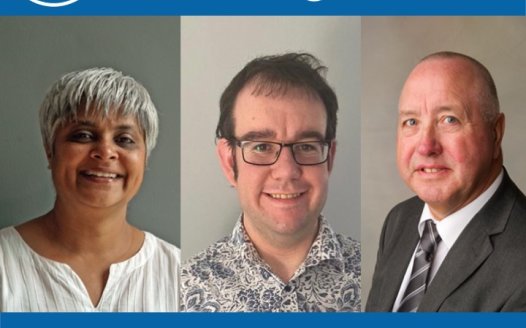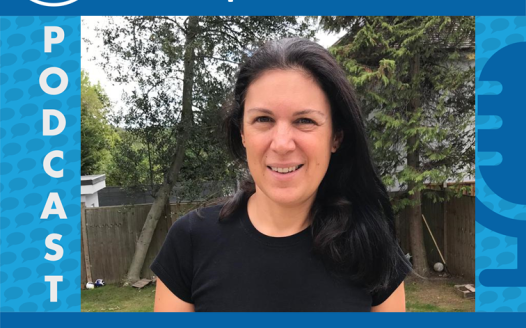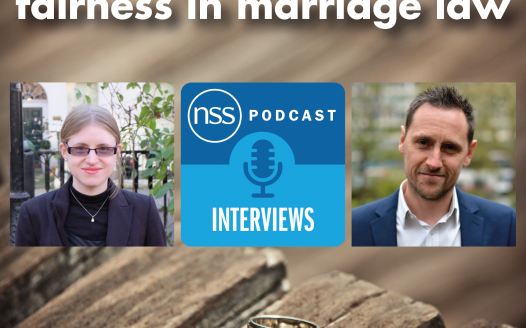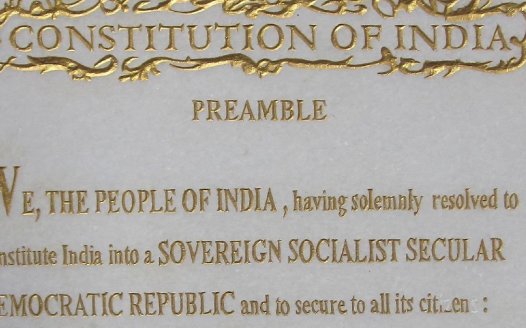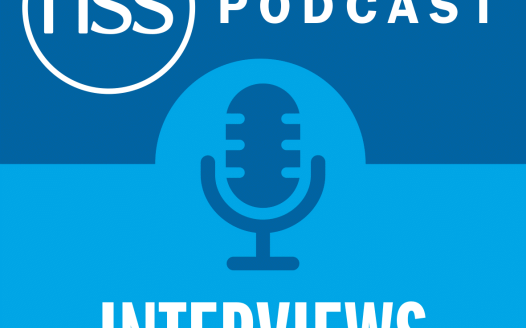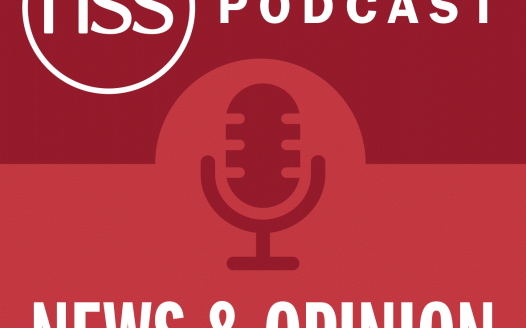Tags: Marriage
Ep 58: Reforming marriage law
Posted: Tue, 5th Oct 2021
What's wrong with marriage law in England and Wales, and how can it be made fit for purpose in the twenty-first century?
In January, the Law Commission completed a consultation on the reform of weddings law. They are due to publish the results at the end of the year. In this episode, Emma Park is joined by three guests, who together discuss some of the main problems with the laws surrounding marriages and their consequences in England and Wales, and the ways in which they need to be reformed. These problems include the law's current focus on buildings and the assumption that a wedding ceremony (registry office aside) should involve some sort of religion or belief. Another important topic is the extent to which unregistered religious marriages in minority communities are exploited to give one party an unfair advantage.
Russell Sandberg, Professor of Law at Cardiff University, has recently published a book entitled Religion and Marriage Law: The Need for Reform. See his blog post on marriage law.
Pragna Patel is the founder of Southall Black Sisters, a non-for-profit, secular and inclusive organisation that supports the rights of Asian and African-Caribbean women in Britain. See her blog post on 'Shariafication by stealth'.
Philip Spicksley is an independent celebrant and Chair of the Wedding Celebrancy Commission, as well as President of the Association of Independent Celebrants.
The NSS campaigns for legally binding weddings to be equally open to all, regardless of religion or sexual orientation.
Watch this episode on YouTube | Direct MP3 Link | Transcripts
Support the podcast, share with a friend, and leave a positive review everywhere you can.
Podcast produced by Emma Park for the National Secular Society (2021). All rights reserved.
Ep 46: Forced marriage and the importance of RSE
Posted: Tue, 30th Mar 2021
A marriage can be forced even if it doesn't involve the threat of physical violence. In some faith communities in Britain, young people's freedom to choose their future spouse can be denied in subtler ways.
In this episode, Emma Park speaks to Eve Sacks about arranged and forced marriages in the Haredi community. Eve is a board member at Nahamu, an organisation which aims to counter religious extremism within Britain's Jewish population. Eve argues that the crucial problem with forced marriage is that it deprives participants of their autonomy, as well as putting them at risk of more concrete harms.
Emma is then joined by Megan Manson, the NSS's head of policy and research, to reflect on the role of Relationships and Sex Education (RSE) in reducing the risk of forced marriage. They discuss the importance of making RSE mandatory for all schoolchildren, and the difficulties of allowing religious schools to continue to teach the subject 'within the tenets of their faith'.
Watch this episode on YouTube | Direct MP3 Link | Transcripts
Follow Emma on Twitter: @DrEmmaPark
Notes
- Improve RSE in faith schools to curb forced marriage, campaigners say – NSS
- Nahamu's Position Paper on Forced Marriage: Analysis of Arranged Marriage as Practised in Jewish Communities
- We cannot turn a blind eye to these forced marriages – Jewish Chronicle
- 'Normal' for them: Controlling the narrative of forced marriage and delegitimising damage – Yehudis Fletcher
Support the podcast, share with a friend, and leave a positive review everywhere you can.
Ep 34: Freedom and fairness in marriage law
Posted: Thu, 17th Sep 2020
In this episode, Emma Park speaks to Stephen Evans and Megan Manson from the NSS team about marriage law reform in England and Wales. English marriage law has developed over the centuries with different religious groups being given compromises and exemptions.
Sometimes marriage is permitted outside, sometimes it must be within a licensed building; different set forms of words are required to make it legally binding; and if you're not religious, or if you want to marry someone of the same sex, then your options are much reduced.
The NSS has long campaigned for reforms, and now the Law Commission looks set to support some of them. Stephen and Megan discuss the Law Commission's proposals, the NSS's stance on issues such as unregistered Islamic marriages and Humanist weddings, and how likely it is that positive reforms will happen under the current government.
Follow Emma on Twitter: @DrEmmaPark
Watch this episode on YouTube | Direct MP3 Link | Transcripts
See also: Outdated weddings laws of England and Wales face overhaul – The Guardian
Make a stand for freedom, fairness and human rights by adding your voice to the call for a secular democracy. Join the National Secular Society today.
Support the podcast, share with a friend, and leave a positive review everywhere you can.
Ep 26: Hindutva with Gita Sahgal
Posted: Thu, 21st May 2020
In this episode, Emma Park speaks to Gita Sahgal, a human rights activist and honorary associate of the NSS, about secularism in India, and the threats it is facing from the Hindutva (Hindu nationalist) movement endorsed by Narendra Modi's government.
Modern India has been a secular state since its foundation in 1947. But since the first election of Modi's government in 2014, as Gita explains, Indian supporters of secularism, pluralism, and the rule of law have been targeted, silenced, and in some cases imprisoned or killed; and the coronavirus pandemic has been used as an opportunity to clamp down on them further.
Gita and Emma also consider how the ideology of Hindutva is bringing its version of Hinduism closer to a monotheistic religion, and how this reinforces its intolerant stance towards Indians who are not Hindus, in particular, the large Muslim minority. Finally, Gita discusses her current work with One Law For All, which is campaigning against sharia law and other religious laws in the UK.
Watch this episode on YouTube | Direct MP3 Link | Transcripts
Notes
Bonus Ep 01: Behind the scenes at Secularism 2019
Posted: Wed, 24th Jul 2019
Here's a little bonus content from Secularism which was originally going to be in our post conference review.
In this episode, Emma Park, a freelance writer and NSS volunteer, interviewed five of the Conference speakers to explore some of the issues raised by their talks in further detail. Some of these were a bit more wide ranging than the topic. Everyone's views are their own and do not necessarily represent those of the NSS.
Watch this episode on YouTube | Transcripts
Notes
Nick Cohen (00:51), political journalist, on the parallels between political and religious extremists, the lack of leadership from liberal centrists in British politics today, and the need for secularists to be self-critical and form political alliances to resist extremists:
'Generalisations are the basis of identity politics and breaking down identity politics is the road to freedom.'
Izzy Posen (08:04), President of the Bristol Free Speech Society, on the damage caused by universities' excessive tolerance of the extremist student groups trying to shut down free speech on campus:
'It's an alliance of Islamists and far leftists, and by Islamists I don't mean Muslims, I mean Islamists who have a political ideology based out of imposing Islamic values on Britain ... [These groups] unite in their hatred for the West.'
Pragna Patel (17:41), Director of Southall Black Sisters, on how secularists can challenge the claim by ethnic minority leaders to speak on behalf of an entire community, even those who may disagree with them:
'Our organisation has always challenged community leaderships, because they have never spoken on behalf of women, they have never spoken on behalf of gay and lesbian communities'.
Rachel Laser (25:13), President of Americans United for Separation of Church and State, on the threats to freedom of expression and other human rights in the US from right-wing evangelicals, and how to 'burst the pimple' of such extremism:
'Today religious freedom in America is more about the right to discriminate, or licence to discriminate, than it is about the right to be able to practise your religious observances.'
Yasmin Rehman (34:06), Member of the NSS Council, on the challenges of being a secular British Muslim, changes in the UK government's treatment of minorities in recent years, and the compatibility of Islam with secularism:
'If you look at a religious text that was written a very very long time ago, it will endorse things that we as a society wouldn't condone ... I want to be able to practise my faith, but I also want to be able to challenge my faith, or any other, when it comes to abuses of human rights'.
You can find out more about the conference speakers and browse all videos on the dedicated page.
Ep 10: Secularism 2019 | Conference review
Posted: Wed, 5th Jun 2019
Helen Nicholls, Megan Manson and Alastair Lichten joined Chris Sloggett for a review of our recent conference (Secularism 2019: Reclaiming Religious Freedom). They discuss some of the speakers, key takeaways and how these will continue to influence our work going forward.
Watch this episode on YouTube | Transcripts
You can find out more about the conference speakers and browse all videos on the dedicated page.
Subscribe to NSS Podcasts: Apple Podcasts | Android | Google Podcasts | Stitcher | Spotify | RSS | YouTube | Blubrry | TuneIn.
If you value the podcast please share it with a friend and leave us a positive review wherever you get it. You can also support future podcasts and our campaigns by joining the NSS or making a donation.

